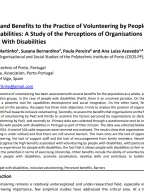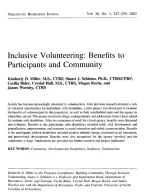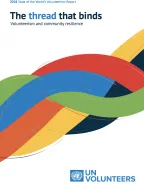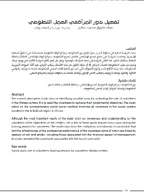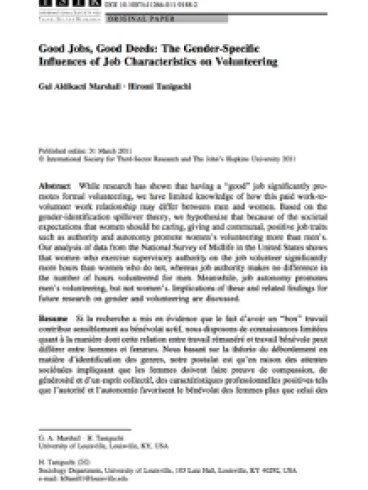
Good Jobs, Good Deeds: The Gender-Specific Influences of Job Characteristics on Volunteering
Fast read
- This study examines the effects of job characteristics, such as authority, autonomy, and skill requirements, on the level of volunteering with an emphasis on gender differences. Data was collected from the National Survey of Midlife Development for the period 2004–2006.
Summary
The study carefully examines the gender dimension of relationships between paid work and volunteer work, noting there are differences between women and men. This is especially the case with job authority. The findings suggest that women who exercise supervisory authority may volunteer more than women who do not, while job authority is less important to men’s decision to volunteer. It also found that volunteering may be a way for women supervisors to receive positive evaluation, since it allows them to balance perceived “masculine agentic” traits with perceived “feminine communal” traits and appear less threatening and more acceptable. The paper also highlights that women supervisors volunteer for more hours than other women because they perceive the need to translate perceived feminine traits as being “communal, caring and giving” into volunteering.
The study provides policymakers and researchers with new evidence on the relationship between job characteristics and volunteering, focusing on gendered perceptions and the gendered link between occupational supervisory status and volunteering.













